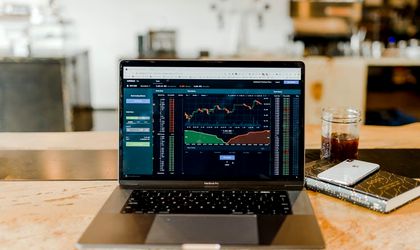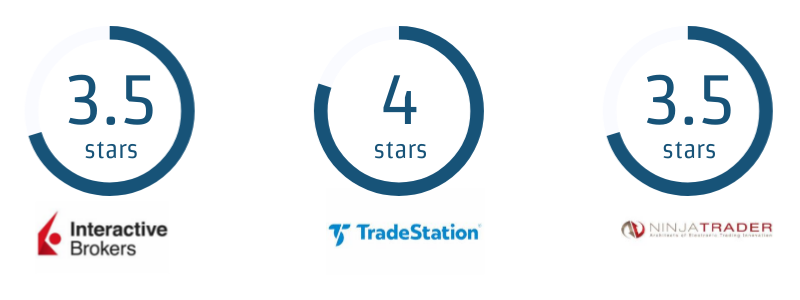
Before we get into the pros and cons of system forex trading, let us briefly outline what it is and its benefits. System forex trading can be a well-respected system. These tips will help you develop your own system. Read on to discover how it can help you become a successful trader. Do not forget to share your stories of success with other traders.
System forex trading is not for everyone
The biggest disadvantage of currency trading, however, is the absence of regulation. While the foreign exchange market is global in nature, regulations may differ from one country to another. Some countries have rules that protect investors and traders. The lack of central exchanges means that prices may differ between brokers and institutions. The downside of forex trading is that it is difficult to predict future market trends, so you have to constantly monitor the market.

Forex traders can trade using high leverage to trade with low capital. More volatile markets would require lower leverage. High leverage also comes with extremely high risks. The market's rapid reversal can lead to huge losses. A disadvantage of forex markets is that they are quiet between 8 and 12 AM UK time. American and European markets are also closed. This low volatility could have a significant effect on trader's trading strategies.
System forex trading courses offer many benefits
Taking a course in system forex trading is beneficial for many reasons. For one, it gives you the opportunity to interact with more experienced traders. Learn from them and chart your own route to trading success. Additionally, you can view the performance statements from successful traders to get hope for the future. The majority of amateur traders fail on the market because they lack an effective trading strategy or someone with whom to compare notes. Most accounts fail because they approach trading with fear and little information.
A course in system forex trading has another advantage: you can replicate professional traders' strategies by using it. This course teaches you how trade plans can be developed before economic events occur and how you can use the instruments that give you an advantage. While this course is suitable for both intermediate and beginner traders, the instructor will prefer that students have some prior knowledge in the forex market. A course in system forex trading will not cost you any money if you already know the basics of trading.
Develop a trading system
Developing a trading system for forex is a process that enables you to generate consistent profit while trading. This type of trading involves using technical indicators to confirm trends. You will also have to define the maximum loss you're willing to incur in a single trade. These strategies are sometimes called backtests. These strategies are utilized by many successful traders. To create your own automated forex trading system, you can use the methods in this book.

A trading system focuses on minimizing losses, which is crucial for avoiding emotional trading. Traders have to determine how much of their account they are willing and able to risk for a single trade. In addition, they must determine the lot size they're willing to lose. To achieve success, a trading system must be based on disciplined and well-managed risk. To minimize risk while maximising profits, the timeframe must be chosen carefully. A trading system that is reliable should keep the maximum risk at a mere 1% of capital.
FAQ
Why is marketable security important?
The main purpose of an investment company is to provide investors with income from investments. It does this through investing its assets in various financial instruments such bonds, stocks, and other securities. These securities are attractive to investors because of their unique characteristics. They can be considered safe due to their full faith and credit.
Marketability is the most important characteristic of any security. This refers to how easily the security can be traded on the stock exchange. It is not possible to buy or sell securities that are not marketable. You must obtain them through a broker who charges you a commission.
Marketable securities include common stocks, preferred stocks, common stock, convertible debentures and unit trusts.
These securities are often invested by investment companies because they have higher profits than investing in more risky securities, such as shares (equities).
What is security in the stock exchange?
Security is an asset that generates income for its owner. Most security comes in the form of shares in companies.
A company could issue bonds, preferred stocks or common stocks.
The earnings per share (EPS), as well as the dividends that the company pays, determine the share's value.
Shares are a way to own a portion of the business and claim future profits. If the company pays you a dividend, it will pay you money.
You can sell your shares at any time.
How can I find a great investment company?
It is important to find one that charges low fees, provides high-quality administration, and offers a diverse portfolio. Fees vary depending on what security you have in your account. Some companies don't charge fees to hold cash, while others charge a flat annual fee regardless of the amount that you deposit. Others may charge a percentage or your entire assets.
You also need to know their performance history. A company with a poor track record may not be suitable for your needs. Avoid low net asset value and volatile NAV companies.
You also need to verify their investment philosophy. In order to get higher returns, an investment company must be willing to take more risks. If they're unwilling to take these risks, they might not be capable of meeting your expectations.
Statistics
- Ratchet down that 10% if you don't yet have a healthy emergency fund and 10% to 15% of your income funneled into a retirement savings account. (nerdwallet.com)
- "If all of your money's in one stock, you could potentially lose 50% of it overnight," Moore says. (nerdwallet.com)
- Individuals with very limited financial experience are either terrified by horror stories of average investors losing 50% of their portfolio value or are beguiled by "hot tips" that bear the promise of huge rewards but seldom pay off. (investopedia.com)
- The S&P 500 has grown about 10.5% per year since its establishment in the 1920s. (investopedia.com)
External Links
How To
How to trade in the Stock Market
Stock trading is the process of buying or selling stocks, bonds and commodities, as well derivatives. The word "trading" comes from the French term traiteur (someone who buys and sells). Traders buy and sell securities in order to make money through the difference between what they pay and what they receive. It is one of the oldest forms of financial investment.
There are many different ways to invest on the stock market. There are three main types of investing: active, passive, and hybrid. Passive investors simply watch their investments grow. Actively traded traders try to find winning companies and earn money. Hybrid investors combine both of these approaches.
Passive investing is done through index funds that track broad indices like the S&P 500 or Dow Jones Industrial Average, etc. This is a popular way to diversify your portfolio without taking on any risk. All you have to do is relax and let your investments take care of themselves.
Active investing is about picking specific companies to analyze their performance. The factors that active investors consider include earnings growth, return of equity, debt ratios and P/E ratios, cash flow, book values, dividend payout, management, share price history, and more. They then decide whether they will buy shares or not. If they feel that the company's value is low, they will buy shares hoping that it goes up. On the other hand, if they think the company is overvalued, they will wait until the price drops before purchasing the stock.
Hybrid investing is a combination of passive and active investing. One example is that you may want to select a fund which tracks many stocks, but you also want the option to choose from several companies. This would mean that you would split your portfolio between a passively managed and active fund.